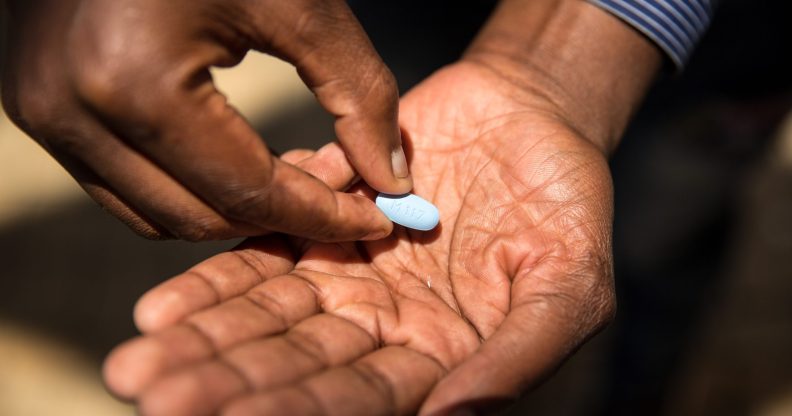Experimental PrEP that only needs to be taken once a month shows early promise

Pre-exposure prophylaxis, or known simply by ‘PrEP’, is a common antiviral drug. (Getty)
An experimental HIV drug that could be used as a once-monthly PrEP has passed an important first step.
Islatravir is a new antiretroviral drug currently in early stages of testing that researchers believe could have extraordinary capacity to persist in the body, meaning it would need to be taken far less frequently than existing, daily regimens. As a HIV treatment it may only need to be taken once a week, and just once a month as PrEP.
Though it faces many more tests, including human efficacy studies, results of a study to test the drug’s persistence in the body were revealed on Tuesday (26 January) at the HIV Research for Prevention virtual conference.
Pittsburgh University professor Sharon Hillier, who presented the results, said the study aimed to determine the persistence of islatravir in the blood tissues of 250 volunteers aged 18-65 at low risk of HIV infection.
Participants received six once-monthly doses of islatravir, either at 60 or 120 milligrams, or a placebo.
Those who took either islatravir pill had trough levels (the level before a subsequent dose) that were above the threshold scientists believe necessary for the drug to work.
The median age of the 192 participants who were reported in the interim analysis was 32. Two-thirds were women, 64 per cent were white, 30 per cent were Black and 16 per cent were Latino.
About the drug’s monthly consumption, Hillier said: “We envisage people could go to a pharmacy once a month and either take it right there or take it home with them. This would be ideal for people who don’t want an injection but also don’t want to risk the discovery of a bottle of pills.”
More than half – 53 per cent – of participants experienced at least one adverse event, which may or may not have been related to the drug. Some of these included nausea, stomach pain, diarrhoea and headache.
Two patients discontinued due to adverse events, and four had transient rises in their liver enzymes. However, there were no adverse effects considered to be serious.
According to Aidsmap: “In terms of efficacy against HIV, so far the only data comes from monkeys, who were completely protected from viral challenge by monthly islatravir.”
However, the American multinational pharma company Merck & Co has plans to roll out testing of the drug on people living with HIV imminently.
The plans, funded by the Gates Foundation, include recruiting 4,500 cisgender women in the US and Sub-Saharan Africa for its IMPOWER 022 Study, which is set to begin in February 2021.
A further 2,000 gay and bisexual cis men, and transgender women across several different countries will also take part in the company’s IMPOWER 024 study, planned for roll out this summer.

